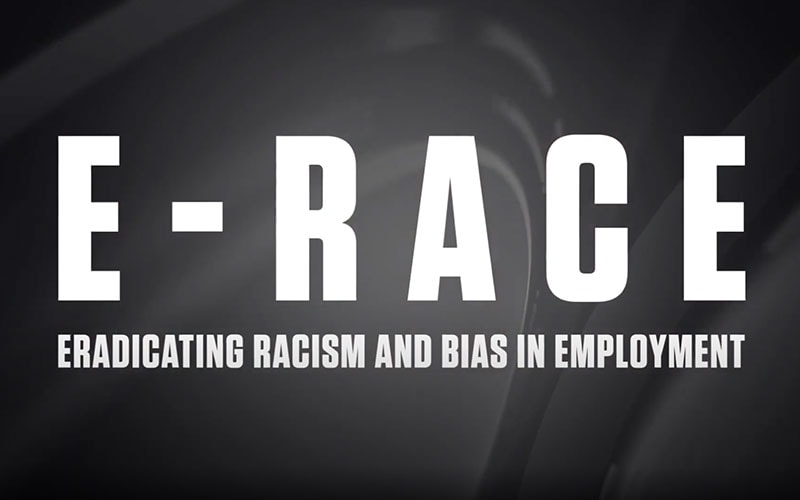As a Founder member of WEF Partnering for Racial Justice in Business, Infosys continues to inform practice on racial equity and inclusion

Celebrating Black History Month
Black History Month Origin and History
Black History Month originates from the early 20th-century historian Carter G. Woodson's desire to spotlight the accomplishments of Black Americans. Up until the 1960s, Black Americans had been excluded from American History by mainstream historians. Woodson created Negro History week in 1926, which lead to the establishment of Black History Month in 1976.
Since then, every U.S. president has officially designated the month of February as Black History Month. Other countries around the world, including Canada and the United Kingdom, also devote a month to celebrating Black history.
The theme of Black History Month 2021 is The Black Family: Representation, Identity and Diversity: exploration of the African diaspora, and the spread of Black families across the world.
Hear from Infoscions about what Black History Month means to them.


It takes a village to raise a child, African Proverb.
The famous African proverb: ‘It takes a village to raise a child!’ originated from the Nigerian Igbo culture and proverb ‘Oran a azu nwa’, which means it takes a community or village to raise a child. The Igbo’s also name their children ‘Nwa ora’ which means child of the community.
The same sentiment is echoed in proverbs of various other African cultures, such as the Swahili proverb “One hand does not nurse a child”, the Sudanese proverb “A child is a child of everyone” and the Tanzanian proverb “One knee does not bring up a child”.
Both proverbs encompass the spirit of collectivism that the Black community has embraced while creating extended family communities such as HBCUs, Black Greek and Professional organizations to confront the social challenges. This history provides powerful insight into the diversity, identity and representation of the dynamic Black family.
Join us as we honor the legacy of Black families across the diaspora in the context of their storied past and present.
Black Greek Letter Organizations (Sororities and fraternities)
There are nine historically Black Greek letter organizations (BGLOs) that make up the National Pan-Hellenic Council.
These organizations are referred to as "The Divine Nine."
Each of these fraternities and sororities is rich in history, as ties to one or more of these organizations may be found in many college-educated Black families in the United States.
- Alpha Phi Alpha Fraternity, Founded 1906, Cornell University
- Alpha Kappa Alpha Sorority, Founded 1908, Howard University
- Kappa Alpha Psi Fraternity, Founded 1911, Indiana University
- Omega Psi Phi Fraternity, Founded 1911, Howard University
- Delta Sigma Theta Sorority, Founded 1913, Howard University
- Phi Beta Sigma Fraternity, Founded 1914, Howard University
- Zeta Phi Beta Sorority, Founded 1920, Howard University
- Sigma Gamma Rho Sorority, Founded 1922, Butler University
- Iota Phi Theta Fraternity, Founded 1963, Morgan State University


Historically Black Colleges (HBCUs)
Historically black colleges and universities are institutions of higher education in the United States that were established before the Civil Rights Act of 1964 with the intention of primarily serving the African-American community. These institutions were created to allow recently emancipated slaves an opportunity to pursue higher education. They first gave black students the opportunity to obtain higher education when virtually no other colleges would.
While times have changed, HBCUs remain relevant and are even more important today than ever before. HBCUs continue to provide a culture of caring—a culture that prepares students to contribute to their communities, a culture that builds confidence and that gives them the essential skills they need to cultivate a career. That is a culture that is good for everyone and can help bridge the academic achievement gap that exists in America today.
There are 101 HBCUs in the United States, including both public and private institutions (of 121 institutions that existed during the 1930s). Of these remaining HBCU institutions in the United States, 27 offer doctoral programs, 52 offer master's programs, 83 offer bachelor's degree programs, and 38 offer associate degrees.
Black Professional Organizations
Black Professional Organizations (BPOs) were established to ensure that African Americans and other minorities have access to a support group that could provide information on opportunities for advancement in their professions. There missions are to guide collegiate students and career professionals along thriving pathways that expand their influence, knowledge, and net worth. BPOs help cultivate future leaders through development, advocacy, and mentorship - all with a focus on issues important to Black people across the diaspora.
Joining a BPO offers great opportunity to develop genuine relationships with like-minded people, but while also providing a unique support system.
In 2021, Infosys is supporting two organizations to recruit diverse talent and to partner with various Chapter organizations:
National Black MBA Association (NBMBAA)
National Black MBA Association seeks to align itself with outstanding corporate partners that share our commitment to creating educational opportunities and economic growth for African-Americans and diverse business professionals. NBMBAA works to foster mutually beneficial relationships that create a pipeline of diverse talent for its partners, offers new and exciting resources and opportunities for its members, while increasing the reach and impact of the NBMBAA.
National Society of Black Engineers (NSBE)
With more than 500 chapters and nearly 16,000 active members in the U.S. and abroad, the National Society of Black Engineers (NSBE) is one of the largest student-governed organizations based in the United States. NSBE, a 501(c)(3) nonprofit organization founded in 1975, supports and promotes the aspirations of collegiate and pre-collegiate students and technical professionals in engineering and technology. NSBE’s mission is "to increase the number of culturally responsible Black Engineers who excel academically, succeed professionally and positively impact the community."
E-Race Series
E-RACE is a 4-Part conversation series initiating meaningful dialogue about racism, bias and inclusion hosted by the iBELIEVE (Infosys Black Employees, Leading in Excellence, Vision and Equity) ERG Council and Americas Diversity & Inclusion.
Read More

